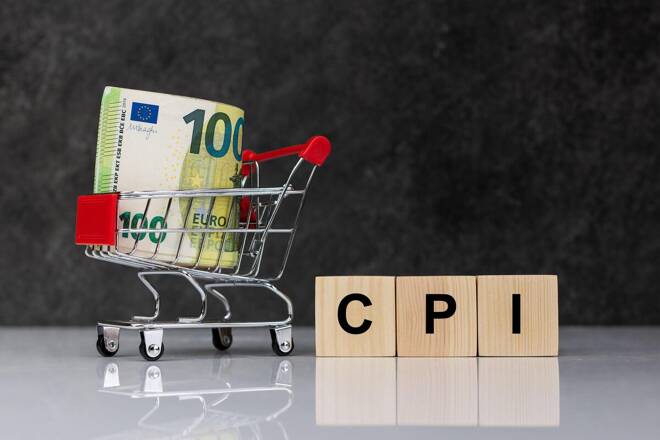Advertisement
Advertisement
Consumer Relief: Germany’s Inflation Drops to 4.5%
By:
Germany's September 2023 inflation drops to 4.5%, driven by +7.5% food prices and +1.0% energy costs, raising ECB concerns.
Highlights
- Germany’s September 2023 inflation: 4.5%
- Food prices surge by +7.5%; energy prices up by +1.0%
- Implications for ECB and European financial markets.
Germany’s Inflation Moderates in September 2023
Germany’s Inflation Rate Drops to 4.5%
In a much-anticipated shift, Germany’s inflation rate for September 2023 has eased to 4.5%, marking its lowest level since the outbreak of the Ukraine conflict. This marks a significant downturn from the previous month’s 6.1% and is a sigh of relief for consumers. The last time Germany experienced a lower inflation rate was in February 2022 when it stood at +4.3%. The inflation rate is measured as the change in the consumer price index (CPI) compared to the same month a year earlier.
Impact on European Markets
The expected slowdown in Germany’s headline CPI from 6.4% to 4.5% is likely to have a ripple effect on tomorrow’s EU flash CPI numbers. Investors are closely monitoring this development as it could provide valuable insights into whether the European Central Bank (ECB) could have exercised greater patience. The implications of this data release might reverberate across European financial markets.
Price Dynamics in September 2023
In September 2023, food prices continued their above-average growth trajectory, surging by +7.5% compared to the same month the previous year. However, energy prices only increased by +1.0%, significantly lower than the year-on-year change rate of the overall index. This discrepancy can be attributed to a base effect compared to September 2022, influenced by the measures of the Federal Government’s third relief packages, particularly the end of the fuel discount.
Services Sector and Price Development
The discontinuation of the 9-euro ticket in September 2022, which was available from June through August 2022, has also played a role in price dynamics. This led to a base effect in the services sector, which saw prices rise by +4.0% compared to the same month in the preceding year.
As Germany navigates these shifts in inflation and price dynamics, consumers and investors alike will remain vigilant, closely monitoring further economic indicators and central bank decisions to inform their financial strategies.
About the Author
James Hyerczykauthor
James Hyerczyk is a U.S. based seasoned technical analyst and educator with over 40 years of experience in market analysis and trading, specializing in chart patterns and price movement. He is the author of two books on technical analysis and has a background in both futures and stock markets.
Advertisement
